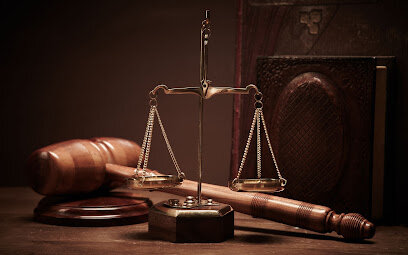Best Discrimination Lawyers in India
Share your needs with us, get contacted by law firms.
Free. Takes 2 min.
Or refine your search by selecting a city:
List of the best lawyers in India
About Discrimination Law in India
Discrimination in India is addressed through a combination of constitutional provisions, legislative acts, and judicial decisions that aim to promote equality and prevent unfair treatment based on factors such as caste, religion, gender, disability, and more. The Indian Constitution, particularly articles such as 14, 15, 16, and 17, guarantees equality before the law and prohibits discrimination on various grounds. Alongside these constitutional rights, several laws, such as the Scheduled Castes and Scheduled Tribes (Prevention of Atrocities) Act, 1989, and the Rights of Persons with Disabilities Act, 2016, have been enacted to combat specific forms of discrimination.
Why You May Need a Lawyer
Seeking legal help in discrimination cases can be crucial for several reasons. Individuals may require assistance in:
- Interpreting complex legal provisions related to discrimination and understanding their rights.
- Filing complaints with the appropriate authorities or courts.
- Representing their case in legal proceedings to seek justice or compensation.
- Negotiating settlements or resolutions with offending parties.
- Protecting themselves from retaliation or further discrimination.
Local Laws Overview
India has developed an extensive legal framework to counteract discrimination, some of which includes:
- The Constitution of India: Provides fundamental rights that safeguard against discrimination.
- The Protection of Civil Rights Act, 1955: Penalizes discrimination on the basis of religion, race, caste, sex, or place of birth.
- The Equal Remuneration Act, 1976: Ensures equal pay for equal work regardless of gender.
- The Rights of Persons with Disabilities Act, 2016: Protects the rights of persons with disabilities.
- The Transgender Persons (Protection of Rights) Act, 2019: Secures rights for transgender individuals.
Frequently Asked Questions
What constitutes discrimination under Indian law?
Discrimination refers to unfair treatment or prejudicial actions based on characteristics such as caste, religion, gender, and disability, among others.
What should I do if I face discrimination at the workplace?
Consult with a legal professional and consider filing a complaint with your organization's internal grievance committee or the Equal Opportunities Commission, depending on the situation.
Is discrimination based on caste illegal in India?
Yes, the Indian Constitution and various statutes like the Scheduled Castes and Scheduled Tribes (Prevention of Atrocities) Act prohibit caste-based discrimination.
Can I file a discrimination lawsuit on my own?
While you can, it is advisable to seek legal advice given the complexity of legal procedures and the importance of presenting your case effectively.
What is the role of NGOs in combating discrimination?
NGOs provide support, advocacy, legal assistance, and awareness programs to combat and prevent discrimination.
Can discrimination include verbal abuse?
Yes, discrimination can include verbal abuse if it involves derogatory remarks based on protected characteristics.
What are the penalties for discrimination in India?
Penalties vary depending on the nature of the discrimination and the law violated, ranging from fines to imprisonment and compensatory damages.
How does the judiciary in India handle discrimination cases?
The judiciary interprets and applies constitutional and legislative provisions to provide relief and ensure justice in discrimination cases.
What is sexual harassment, and how is it addressed under Indian law?
Sexual harassment is unwanted and inappropriate behavior of a sexual nature and is addressed under the Sexual Harassment of Women at Workplace (Prevention, Prohibition, and Redressal) Act, 2013.
Are there any special provisions for women facing discrimination?
Yes, several laws such as the Dowry Prohibition Act, and the Protection of Women from Domestic Violence Act provide safeguards and rights for women.
Additional Resources
Consider reaching out to the following resources for more information and assistance:
- Ministry of Social Justice and Empowerment
- National Commission for Scheduled Castes
- National Commission for Women
- National Human Rights Commission
- NGOs like Amnesty International India and Human Rights Watch India
Next Steps
If you need legal assistance related to discrimination:
- Document all instances of discrimination, noting dates, times, locations, and witnesses.
- Consult with a lawyer who specializes in discrimination law to discuss your situation and potential legal remedies.
- File a formal complaint with the appropriate authority or pursue legal action, with guidance from your lawyer.
- Participate in any required hearings or proceedings to advocate for your rights.
- Seek support from advocacy groups or counseling if you are experiencing distress from ongoing or past discrimination.
Lawzana helps you find the best lawyers and law firms in India through a curated and pre-screened list of qualified legal professionals. Our platform offers rankings and detailed profiles of attorneys and law firms, allowing you to compare based on practice areas, including Discrimination, experience, and client feedback.
Each profile includes a description of the firm's areas of practice, client reviews, team members and partners, year of establishment, spoken languages, office locations, contact information, social media presence, and any published articles or resources. Most firms on our platform speak English and are experienced in both local and international legal matters.
Get a quote from top-rated law firms in India — quickly, securely, and without unnecessary hassle.
Disclaimer:
The information provided on this page is for general informational purposes only and does not constitute legal advice. While we strive to ensure the accuracy and relevance of the content, legal information may change over time, and interpretations of the law can vary. You should always consult with a qualified legal professional for advice specific to your situation.
We disclaim all liability for actions taken or not taken based on the content of this page. If you believe any information is incorrect or outdated, please contact us, and we will review and update it where appropriate.
Browse discrimination law firms by city in India
Refine your search by selecting a city.













